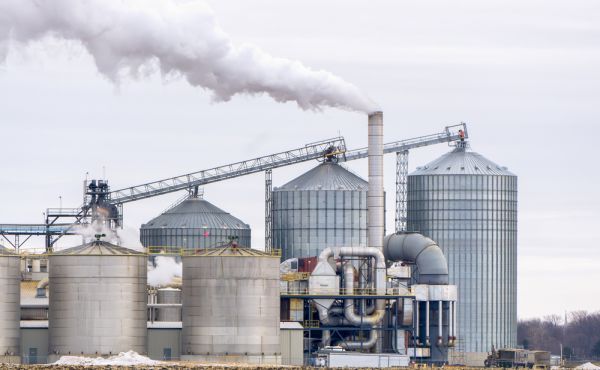ICGA Comments on Rule that could Negatively Impact Low Carbon Fuels Including Higher Blends of Ethanol

Last week, the Illinois Corn Growers Association (ICGA) submitted comments on behalf of Illinois farmers to the Environmental Protection Agency (EPA) opposing a proposed rule that could negatively impact low carbon fuels such as higher ethanol blends.
The proposed rule on Vehicle Test Procedure Adjustments for Tier 3 Certification Test Fuel would change vehicle emission test procedures following the update in test fuel from E0 to E10 fuels.
ICGA’s comments, submitted in conjunction with Indiana, Iowa, Kansas, Kentucky, Michigan, Missouri, Nebraska, Wisconsin, Ohio, and Texas corn associations begin by saying:
- “For the first time in the history of the Clean Air Act (CAA), EPA seeks to penalize a test fuel, not because the fuel’s carbon emissions are too high, but because they are too low. EPA’s proposed Vehicle Test Procedure Adjustments for Tier 3 Certification Test Fuel rule would artificially inflate the CO2 emissions of vehicles certified with the Tier 3 E10 test fuel instead of the Tier 2 E0 test fuel. This distortion is perverse.
- “The proposed rule exceeds EPA’s authority, and it is arbitrary and capricious for numerous reasons.”
EPA is proposing to add carbon emissions to vehicle test results when less carbon was emitted from the vehicle tailpipe. Rather than penalizing lower carbon fuel through the proposed test procedure adjustment, EPA should support greater use of low-carbon fuels and consider how vehicles and fuels work as a system to reduce carbon and other tailpipe emissions.
ICGA’s comments also include the following important points:
- CO2 Adjustment: The proposed distortion of measured CO2 emissions exceeds EPA’s authority under the Clean Air Act to determine vehicle test procedures.
- Fuel Economy Adjustment: EPA’s proposed fuel economy adjustment factor (R) of 0.81 is far too low, underestimating calculated fuel economy and effectively changing the fuel economy standards.
- Executive Order 13,771 Compliance: By failing to account for the significant costs associated with the change in emissions and fuel economy standards that would result from the adjustments, the proposed rule fails to comply with Executive Order 13,771.
ICGA considers its obligation to represent Illinois corn farmers in public comments of the utmost importance. Please read our comments in full here.







